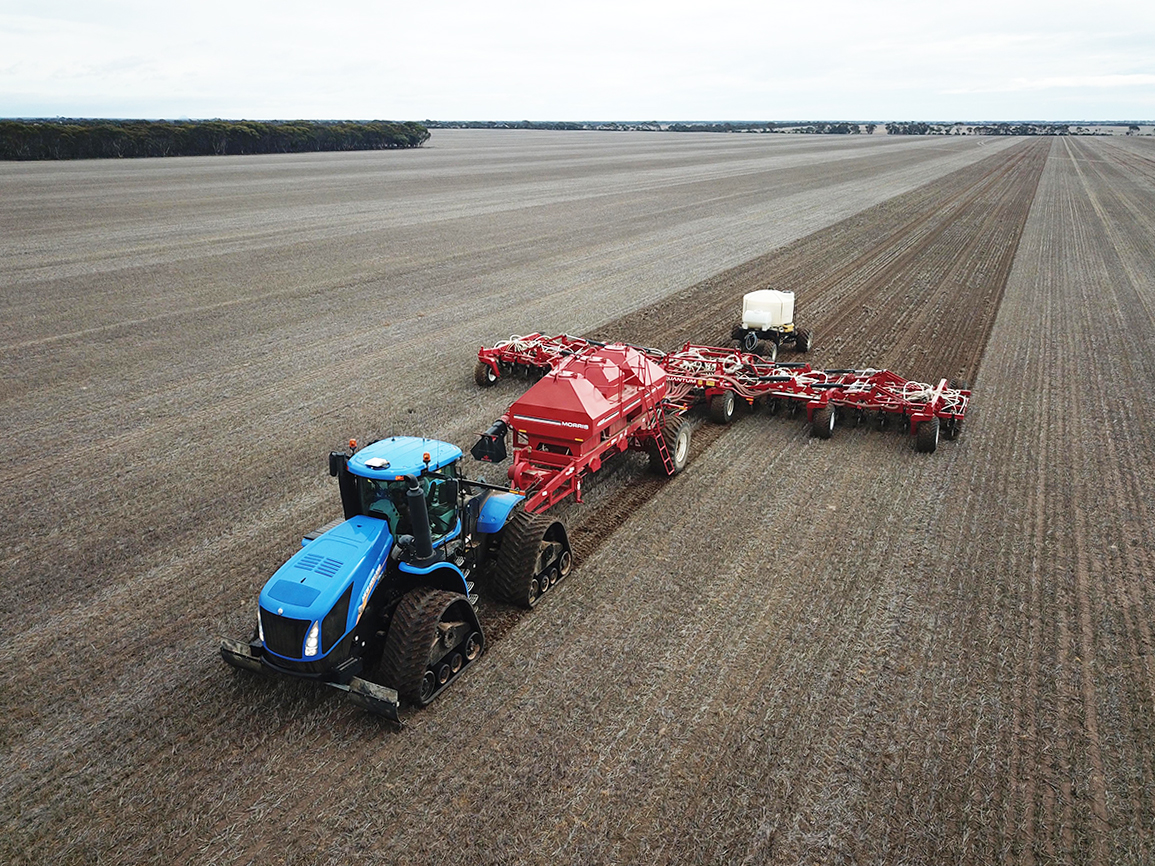
Author: Lucy Burrows
Published: July 07, 2020
Despite most of society going into lockdown at the outbreak of COVID-19, the agricultural industry powered on. Autumn in the Esperance region signals seeding and timely seeding, with the important addition of rain, ensures farmers are setting their crops up for success. Due to the cyclical nature of the industry seeding needed to go ahead regardless of the coronavirus. It’s not as easy as just shutting up shop for a few months and picking up where you left off. As such, farmers couldn’t afford to be complacent about the virus and quickly got on board with the restrictions to prevent coronavirus from putting them out of work.
At Taliska Pastoral Company, near Scaddan, Wags Siemer said they practised social distancing and discouraged people coming on-farm if they didn’t need to be there. This was highlighted with homemade signs to notify social distancing was in practice. “Everyone got on board very quickly as we all realised we had no time for any delays,” Wags said. In Grass Patch, Ash Bowman described how they practised social distancing as much as possible. “We put a policy in place where we were hand sanitising after swapping vehicles and trying to minimise sharing vehicles and equipment as much as we could,” he said.

The introduction of lockdown measures and coronavirus restrictions in the lead up to seeding ignited uncertainty around seasonal labour. National border restrictions prevented some backpackers from getting to their pre-organised place of work. “The couple we were getting [to work] had to stay in Queensland,” Ash said. “So I just decided to drive my seeder because footy was cancelled and I had more time.” Farmers were also inundated with pleas for work from people who suddenly found themselves unemployed, from displaced backpackers through to Aussies who don’t normally work in the ag industry. When the whole world seemed uncertain, agriculture proved to be a reliable industry, stable enough to withstand even the most unstable of times. In a way, the virus provided a platform for ag, showing it off as the indispensable industry it is as well as the many career opportunities that lay within.
Cascade farmer, Rod King, hired an out of work airline pilot for seeding. Rod’s neighbour knew the pilot and told him of his situation, so Rod contacted him to see if he was interested in work. Rod described the pilot as being “as keen as mustard.” He said it was a great arrangement with the pilot being very interested in how the farm ran. His jobs included loading trucks and driving the seeder. Rod said it was beneficial having someone that was good with technology as well as hands-on. “It was just good to help out a fellow WA person,” Rod said.
Accounts around the region have echoed each other and reveal that the virus didn’t affect farming operations too much. Only small changes needed to be made and local community groups and businesses helped ensure it was smooth sailing. Grass Patch Community Development Association, for example, employed a truck driver to do food and supplies pickups for some of the farming communities surrounding Esperance to minimise residents’ trips to town. Many local businesses went above and beyond too, to ensure operations could continue as normal, by keeping their distance and ringing ahead when they needed to head out to the farm.
While the virus has turned life as we know it on its head, it has also highlighted how the agricultural industry is quick to adapt to change and able to sustain itself through uncertain times. The virus has also, yet again, proven this community’s ability to get behind one another in times of need. After all, out of something bad, almost always comes something good.
Photography credit: @bowmanfarming